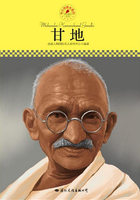[19:5] (86) There remains for me to point out the cause for the frequent disputes on the subject of these spiritual rights in Christian states; whereas the Hebrews, so far as I know, never, had any doubts about the matter. (87) It seems monstrous that a question so plain and vitally important should thus have remained undecided, and that the secular rulers could never obtain the prerogative without controversy, nay, nor without great danger of sedition and injury to religion. (88) If no cause for this state of things were forthcoming, I could easily persuade myself that all I have said in this chapter is mere theorizing, or akind of speculative reasoning which can never be of any practical use. (89) However, when we reflect on the beginnings of Christianity the cause at once becomes manifest. (90) The Christian religion was not taught at first by kings, but by private persons, who, against the wishes of those in power, whose subjects they, were, were for a long time accustomed to hold meetings in secret churches, to institute and perform sacred rites, and on their own authority to settle and decide on their affairs without regard to the state,(91) When, after the lapse of many years, the religion was taken up by the authorities, the ecclesiastics were obliged to teach it to the emperors themselves as they had defined it: wherefore they easily gained recognition as its teachers and interpreters, and the church pastors were looked upon as vicars of God. (92) The ecclesiastics took good care that the Christian kings should not assume their authority, by prohibiting marriage to the chief ministers of religion and to its highest interpreter. (93) They furthermore elected their purpose by multiplying the dogmas of religion to such an extent and so blending them with philosophy that their chief interpreter was bound to be a skilled philosopher and theologian, and to have leisure for a host of idle speculations: conditions which could only be fulfilled by a private individual with much time on his hands.
(19:94) Among the Hebrews things were very differently arranged: for their Church began at the same time as their dominion, and Moses, their absolute ruler, taught religion to the people, arranged their sacred rites,and chose their spiritual ministers. (95) Thus the royal authority carried very great weight with the people, and the kings kept a firm hold on their spiritual prerogatives.
(19:96) Although, after the death of Moses, no one held absolute sway, yet the power of deciding both in matters spiritual and matters temporal was in the hands of the secular chief, as I have already pointed out. (97) Further, in order that it might be taught religion and piety, the people was bound to consult the supreme judge no less than the high priest (Deut. xvii:9, 11). (98) Lastly, though the kings had not as much power as Moses, nearly the whole arrangement and choice of the sacred ministry depended on their decision. (99) Thus David arranged the whole service of the Temple (see 1 Chron. xxviii:11, 12, &c.); from all the Levites he chose twenty-four thousand for the sacred psalms; six thousand of these formed the body from which were chosen the judges and proctors, four thousand were porters, and four thousand to play on instruments (see 1 Chron. xxiii:4, 5). (100) He further divided them into companies (of whom he chose the chiefs), so that each in rotation, at the allotted time, might perform the sacred rites. (101) The priests he also divided into as many companies; I will not go through the whole catalogue, but refer the reader to 2 Chron. viii:13, where it is stated, "Then Solomon offered burnt offerings to the Lord . . . . . after a certain rate every day, offering according to the commandments of Moses;" and in verse 14, "And he appointed, according to the order of David his father, the courses of the priests to their service . . . . . . for so had David the man of God commanded." (102) Lastly, the historian bears witness in verse 15: "And they departed not from the commandment of the king unto the priests and Levites concerning any matter, or concerning the treasuries."[19:6] (103) From these and other histories of the kings it is abundantly evident, that the whole practice of religion and the sacred ministry depended entirely on the commands of the king.
(19:104) When I said above that the kings had not the same right as Moses to elect the high priest, to consult God without intermediaries, and to condemn the prophets who prophesied during their reign; I said so simply because the prophets could, in virtue of their mission, choose anew king and give absolution for regicide, not because they could call a king who offended against the law to judgment, or could rightly act against him [Endnote 33].
(19:105) Wherefore if there had been no prophets who, in virtue of a special revelation, could give absolution for regicide, the kings would have possessed absolute rights over all matters both spiritual and temporal.
(106) Consequently the rulers of modern times, who have no prophets and would not rightly be bound in any case to receive them (for they are not subject to Jewish law), have absolute possession of the spiritual prerogative, although they are not celibates, and they will always retain it, if they will refuse to allow religious dogmas to be unduly multiplied or confounded with philosophy.















